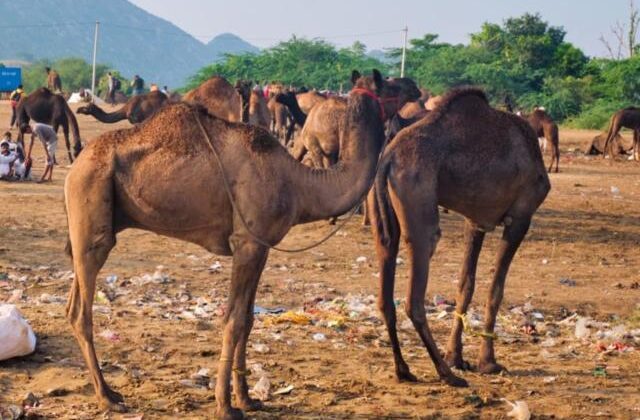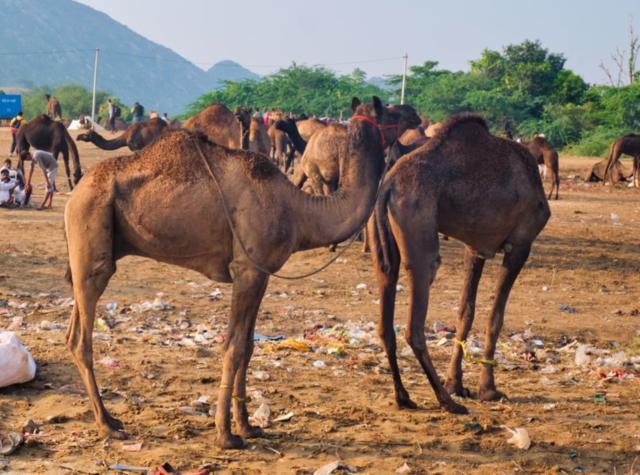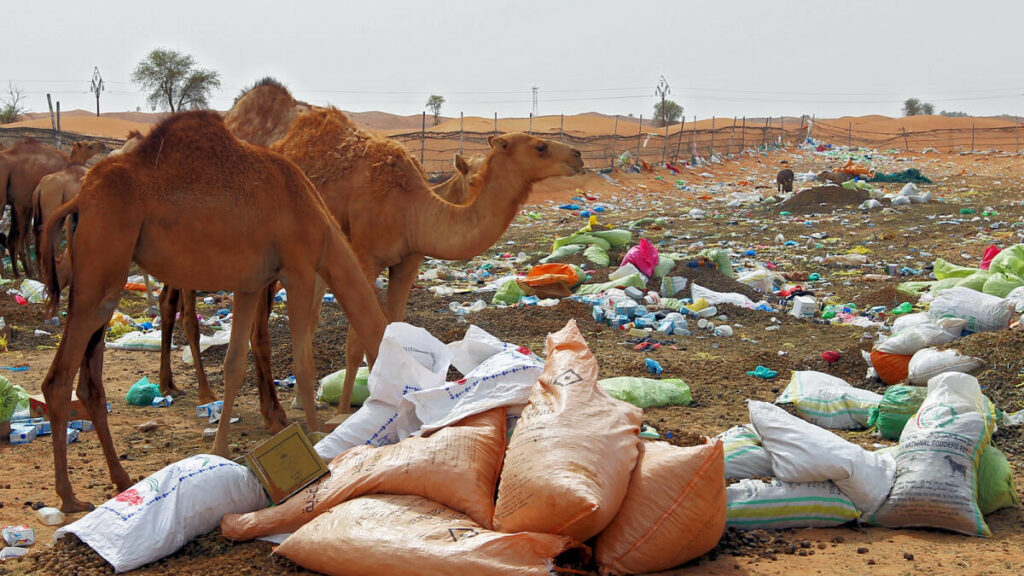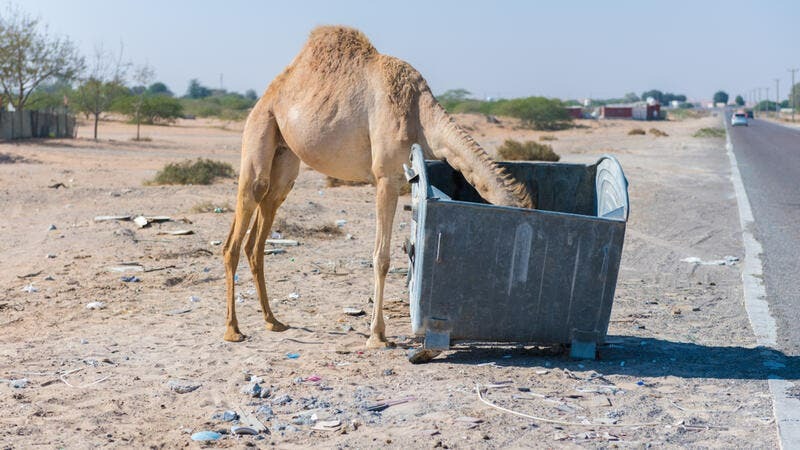
Plastic pollution has emerged as a global crisis, with much attention rightfully focused on its devastating impact on oceans and marine life. However, the perils of plastic pollution extend beyond the seas, as recent discoveries of massive plastic accumulations inside the stomachs of deceased camels have highlighted the severity of the issue on land.

California-based environmental scientist Marcus Eriksen and UAE-based veterinary microbiologist Ulrich Wernery collaborated on an article titled “The Plight of Camels Eating Plastic Waste,” shedding light on a disturbing phenomenon affecting land animals.
Eriksen described the autopsy process as surreal, revealing that polybezoars, plastic clumps ranging from the size of a basketball to a large suitcase, are responsible for 1% of camel deaths in the UAE. Camels, driven by their instinct to find sustenance in the desert, often mistake plastic debris, such as bags stuck in trees or against fences, as potential food sources.

The repercussions of ingesting plastic are dire for camels, leading to intestinal blockages, stomach lacerations, and the creation of a toxic environment conducive to bacterial growth within the folds of the plastic. Eriksen paints a grim picture, describing it as a slow and agonizing death akin to having plastic bags, bottle caps, and straws accumulate inside the body over years.
Camels are not the sole victims of this crisis, as other land animals face similar challenges. A recent case in Colorado saw a bear euthanized due to plastic waste blocking its digestive system, while plastic consumption claimed the lives of two elephants in Sri Lanka.

Addressing this issue requires concerted efforts at both the individual and governmental levels. Public pressure can potentially drive governments to implement stricter regulations on plastic use. Canada’s ban on single-use plastics in 2021 serves as a positive example, with other regions like Massachusetts following suit.

On an individual level, reducing plastic consumption is vital. Understanding effective recycling practices and actively avoiding single-use plastics by opting for reusable alternatives, such as water bottles, can contribute to the collective effort to mitigate the harmful impacts of plastic pollution on land animals. As the toll on wildlife becomes increasingly evident, it is crucial to take meaningful steps towards a more sustainable and plastic-conscious future.

Leave a Reply